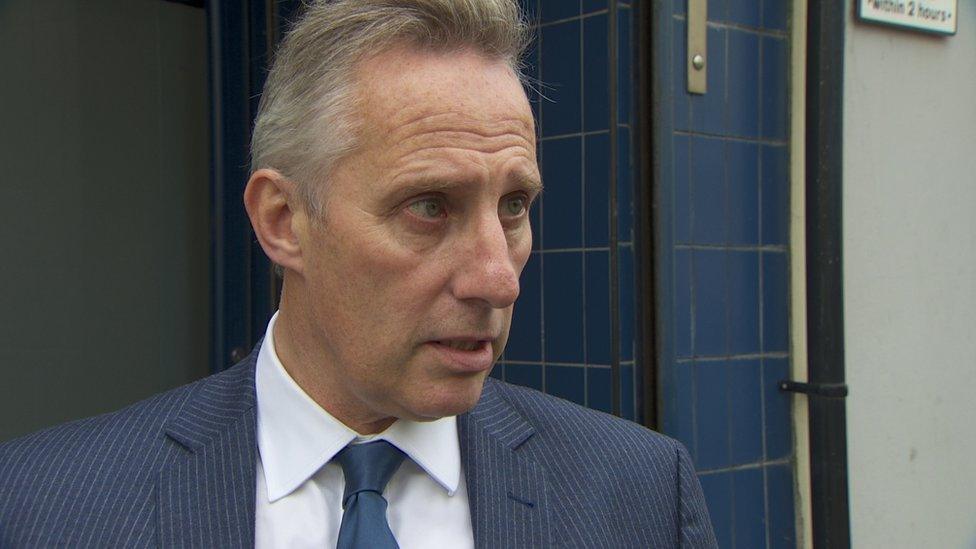Complaints over Ian Paisley recall petition rejected
- Published

Ian Paisley hailed the result of the petition in September, saying people had accepted his apology
Claims more signing centres would have changed the result of a recall petition to unseat DUP MP Ian Paisley have been rejected by the Electoral Commission.
He was the first MP to face a recall petition since a new law was introduced in 2015, but he survived the process and held on to his Commons seat.
The support of 10% of his constituents was required to force a by-election and it fell short by 444 signatures.
Sinn F茅in had complained a lack of venues stacked the odds in his favour.
The party criticised Northern Ireland's chief electoral officer over the decision to limit the number of places that people could sign the petition to just three centres in North Antrim, when the legislation allows for up to 10 locations.
However, the Electoral Commission has carried out a review of the process and found no evidence to suggest that an increased number of centres would have altered the outcome.
It was the first time that the Recall of MPs Bill had been tested anywhere in the UK, and the Electoral Commission concluded the petition was "well-run with no significant problems affecting voters or campaigners".
But it added that there were some lessons to be learnt for future petitions and suggested that the six-week period during which constituents could sign the petition was too long.
Ian Paisley: Petition result a 'miracle'
The report also detailed how much Sinn F茅in and the Alliance party spent on trying to oust Mr Paisley, revealing that both parties spent a total of 拢4,178 between them on their campaigns.
The recall petition was triggered after Mr Paisley accepted a number of expensive family holidays, paid for by the Sri Lankan government, and failed to declare them in his register of interests.
The DUP MP later lobbied the government against supporting a UN resolution on Sri Lanka over alleged human rights abuses, which was viewed as a significant conflict of interest.
His actions were investigated by Westminster's Standards Committee, which concluded he was guilty of "serious misconduct".
In July, his fellow MPs voted to suspend him from the House of Commons for 30 sitting days - one of the longest bans ever to be handed down at Westminster.
The result of the six-week process was confirmed in September, with 7,099 people signing the petition to oust the DUP member, 444 fewer than the required threshold.
Hailing the result at the time, Mr Paisley said he was "stunned" and "greatly humbled" to retain his seat.
He claimed it was evidence that "people accepted" his apology for failing to declare the holidays and that he had "put his hands up".
- Published20 September 2018
- Published12 December 2018